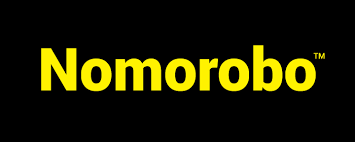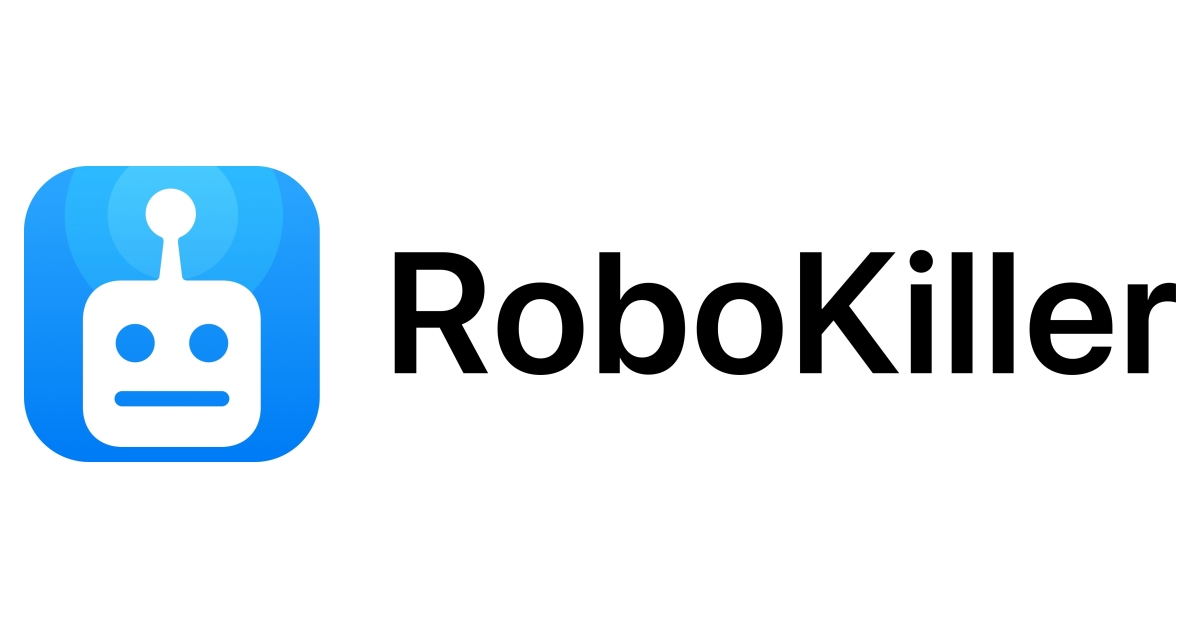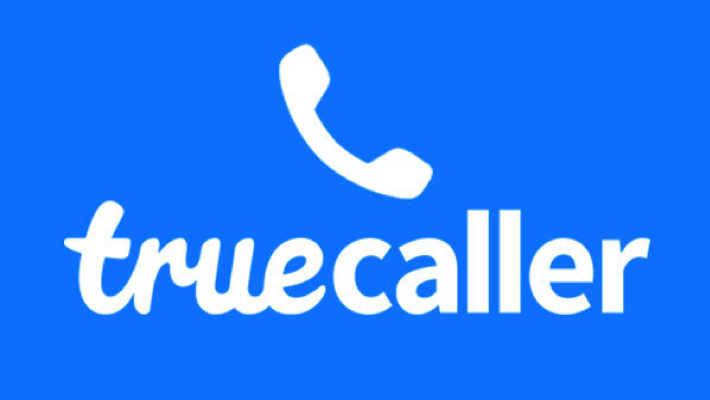Robocalls are annoying, intrusive, and sometimes even dangerous. They can scam you out of your money, identity, or personal information. That’s why you need a reliable and effective robocall blocker to protect yourself and your phone.
In this article, I will share with you the best robocall blocker apps and tools that you can use to stop unwanted calls for good. I will also explain how they work, what features they offer, and how they compare. I will also provide some tips and resources on how to avoid robocalls in the first place.
Before we dive into the list, let me tell you how I evaluated these robocall blockers. I used the following criteria to rank them:
- User perspective: I considered how easy and convenient it is to use the app or tool, how well it integrates with your phone and carrier, and how much control and customization it gives you over your calls.
- Expertise: I looked at how well the app or tool detects and blocks spam calls, how accurate and updated its numbers database is, and how it handles spoofed calls and false positives.
- Evidence: I checked the reviews and ratings of the app or tool on various platforms, such as Google Play Store, Apple App Store, and Trustpilot. I also looked for testimonials, case studies, or awards demonstrating its effectiveness and reputation.
- Performance: I measured how fast and reliable the app or tool is, how much battery and data it consumes, and how it handles network issues or interruptions.
- Features: I compared the different features and benefits that each app or tool offers, such as caller ID, call blocking, call screening, voicemail transcription, spam reporting, reverse lookup, etc.
- Alternatives: I explored the other options available in the market and how they differ from the app or tool in terms of price, functionality, compatibility, etc.
- Pros and cons: I summarized the strengths and weaknesses of each app or tool based on my research and analysis.
So without further ado, here are the best robocall blocker apps and tools of 2025:
1. Hiya: Best Free Third-Party Robocall Blocker
Hiya is one of the most popular and trusted robocall blocker apps for Android and iOS devices. It has over 50 million downloads and a 4.6-star rating on Google Play Store. It also has a 4.5-star rating on Apple App Store.
Hiya uses a combination of machine learning and a global database of over 3 billion phone numbers to identify and block spam calls. It also lets you customize your call-blocking settings based on categories such as fraud, scam, telemarketer, etc.
Hiya also provides caller ID information for unknown numbers, so you can see who is calling you before you answer. You can also perform reverse lookup searches for any number to get more details.
Hiya is free to use with no ads or hidden fees. However, if you want more features, such as advanced caller ID, spam reporting, automatic updates, etc., you can upgrade to Hiya Premium for $3.99 per month or $24.99 per year.
Some of the unique features of Hiya are:
- Smart Call: This feature lets you see the name and picture of any caller not in your contacts list. If available, it also shows you their location, business name, website, etc.
- Neighborhood Spoofing Protection: This feature detects, and blocks spoofed calls that use a local area code to trick you into answering. It also warns you if a number is suspected of being spoofed.
- Call Screener: This feature lets you screen incoming calls by sending them to voicemail or answering them with a pre-recorded message. You can also create custom messages for different callers or groups.
- Spam Alerts: This feature notifies you when a spam call is blocked or missed by Hiya. You can also report spam calls to Hiya’s database to help other users avoid them.
Some of the pros and cons of Hiya are:
Pros:
- Free to use with no ads
- Accurate and comprehensive caller ID
- Customizable call-blocking settings
- Supports both Android and iOS devices
- Works with most major carriers
Cons:
- Premium features require a subscription
- It may drain the battery or data
- May block legitimate calls by mistake
2. Call Protect: Best Robocall Blocker for AT&T Users
Call Protect is a free app AT&T offers its wireless customers to help them block unwanted calls. It has over 10 million downloads and a 4.5-star rating on Google Play Store. It also has a 4.6-star rating on Apple App Store.
Call Protect uses AT&T’s network intelligence and STIR/SHAKEN technology to identify and block spam calls. It also provides caller ID information and spam risk ratings for incoming calls. You can also report unwanted calls to AT&T’s database to improve accuracy.
Call Protect is free to use for AT&T wireless customers with eligible plans. However, if you want more features, such as custom call controls, reverse number lookup, enhanced caller ID, etc., you can upgrade to Call Protect Plus for $3.99 monthly.
Some of the unique features of Call Protect are:
- Personal Block List: This feature allows you to block specific numbers or categories of calls, such as telemarketers, political calls, surveys, etc. You can also block all unknown callers or private numbers.
- Fraud Blocking: This feature automatically blocks calls from known fraudsters or scammers. You can also choose to block calls from suspected fraudsters or high-risk numbers.
- Spam Risk Blocking: This feature automatically blocks calls from numbers that are highly likely to be spam. You can also block calls from numbers with a medium or low probability of being spam.
- Enhanced Caller ID: This feature shows you the name and location of the caller, as well as their spam risk rating. If available, you can also see the caller’s photo, logo, or social media profile.
Some of the pros and cons of Call Protect are:
Pros:
- Free to use for AT&T wireless customers
- Accurate and comprehensive caller ID
- Customizable call-blocking settings
- Supports both Android and iOS devices
- Works with STIR/SHAKEN technology
Cons:
- Plus, features require a subscription
- It may drain the battery or data
- May block legitimate calls by mistake
3. Call Filter: Best Robocall Blocker for Verizon Users
Call Filter is a free app that Verizon offers to its wireless customers to help them block unwanted calls. It has over 10 million downloads and a 4.4-star rating on Google Play Store. It also has a 4.6-star rating on Apple App Store.
Call Filter uses Verizon’s network intelligence and STIR/SHAKEN technology to identify and block spam calls. It also provides caller ID information and spam risk ratings for incoming calls. You can also report unwanted calls to Verizon’s database to improve accuracy.
Call Filter is free to use for Verizon wireless customers with eligible plans. However, if you want more features such as custom call controls, reverse number lookup, enhanced caller ID, etc., you can upgrade to Call Filter Plus for $2.99 or $7.99 monthly for 3+ lines.
Some of the unique features of Call Filter are:
- Personal Block List: This feature allows you to block specific numbers or categories of calls, such as fraud, spam, robocalls, etc. You can also block all unknown callers or private numbers.
- Fraud Blocking: This feature automatically blocks calls from known fraudsters or scammers. You can also choose to block calls from suspected fraudsters or high-risk numbers.
- Spam Risk Blocking: This feature automatically blocks calls from numbers that are highly likely to be spam. You can also block calls from numbers with a medium or low probability of being spam.
- Enhanced Caller ID: This feature shows you the name and location of the caller, as well as their spam risk rating. If available, you can also see the caller’s photo, logo, or social media profile.
Some of the pros and cons of Call Filter are:
Pros:
- Free to use for Verizon wireless customers
- Accurate and comprehensive caller ID
- Customizable call-blocking settings
- Supports both Android and iOS devices
- Works with STIR/SHAKEN technology
Cons:
- Plus, features require a subscription
- It may drain the battery or data
- May block legitimate calls by mistake
4. Scam Shield: Best Robocall Blocker for T-Mobile Users
Scam Shield is a free app that T-Mobile offers to its wireless customers to help them block unwanted calls. It has over 1 million downloads and a 4.3-star rating on Google Play Store. It also has a 4.5-star rating on Apple App Store.
Scam Shield uses T-Mobile’s network intelligence and STIR/SHAKEN technology to identify and block spam calls. It also provides caller ID information and spam risk ratings for incoming calls. You can also report unwanted calls to T-Mobile’s database to improve its accuracy.
Scam Shield is free to use for T-Mobile wireless customers with eligible plans. However, if you want more features, such as custom call controls, reverse number lookup, enhanced caller ID, etc., you can upgrade to Scam Shield Premium for $4 monthly.
Some of the unique features of Scam Shield are:
- Personal Block List: This feature allows you to block specific numbers or categories of calls, such as fraud, spam, robocalls, etc. You can also block all unknown callers or private numbers.
- Scam Block: This feature automatically blocks calls from known or suspected scammers. You can also choose to block calls from high-risk or medium-risk numbers.
- Caller ID: This feature shows you the name and location of the caller, as well as their spam risk rating. If available, you can also see the caller’s photo, logo, or social media profile.
- Number Change: This feature allows you to change your phone number for free if you are a victim of scam calls.
Some of the pros and cons of Scam Shield are:
Pros:
- Free to use for T-Mobile wireless customers
- Accurate and comprehensive caller ID
- Customizable call-blocking settings
- Supports both Android and iOS devices
- Works with STIR/SHAKEN technology
Cons:
- Premium features require a subscription
- It may drain battery or data
- May block legitimate calls by mistake
5. Nomorobo: Best Third-Party Robocall Blocker for Landlines
Nomorobo is a third-party robocall blocker app that works on mobile phones and landlines. It has over 1 million downloads and a 4.2-star rating on Google Play Store. It also has a 4.6-star rating on Apple App Store.
Nomorobo uses a cloud-based algorithm and a database of over 1.5 million numbers to identify and block spam calls. It also lets you report unwanted calls to Nomorobo’s database to help other users avoid them.
Nomorobo is free for VoIP landlines but requires a mobile phone subscription. You can try it free for 14 days and then pay $1.99 per month or $19.99 per year.
Some of the unique features of Nomorobo are:
- Simultaneous Ringing: This feature allows you to connect your landline to Nomorobo’s service so that it rings both your phone and Nomorobo’s server when a call comes in. If Nomorobo detects a spam call, it hangs up before reaching your phone.
- Spam Text Filtering: This feature lets you filter out spam and scam texts from your messages app. You can also report spam texts to Nomorobo’s database to help other users avoid them.
- Spoof-Proof Protection: This feature detects, and blocks spoofed calls that use fake caller IDs or numbers similar to yours. It also warns you if a number is suspected of being spoofed.
- Personal Block List: This feature allows you to block specific numbers or categories of calls, such as fraud, spam, robocalls, etc. You can also block all unknown callers or private numbers.
Some of the pros and cons of Nomorobo are:
Pros:
- Free to use for VoIP landlines
- Accurate and comprehensive caller ID
- Customizable call-blocking settings
- Supports both Android and iOS devices
- Works with most major carriers
Cons:
- Mobile features require a subscription.
- It may drain the battery or data.
- May block legitimate calls by mistake
6. RoboKiller: Best Third-Party Robocall Blocker for Revenge
RoboKiller is a third-party robocall blocker app that works on mobile phones and landlines. It has over 1 million downloads and a 4.1-star rating on Google Play Store. It also has a 4.6-star rating on Apple App Store.
RoboKiller uses a cloud-based algorithm and a database of over 1.5 million numbers to identify and block spam calls. It also lets you report unwanted calls to RoboKiller’s database to help other users avoid them.
RoboKiller is not free to use, but it offers a 7-day free trial. After that, you can pay $3.99 per month, $24.99 per year, or $99.99 for lifetime access.
Some of the unique features of RoboKiller are:
- Answer Bots: This feature lets you prank and annoy spammers with hilarious pre-recorded messages that waste their time and money. You can choose from various Answer Bots, such as Ice T, Kermit the Frog, Morgan Freeman, etc., or create your own.
- RoboRadio: This feature allows you to listen and share the recordings of your Answer Bots with other users. You can also rate and comment on other users’ recordings and discover the most popular ones.
- Spam Text Filtering: This feature lets you filter out spam and scam texts from your messages app. You can also report spam texts to RoboKiller’s database to help other users avoid them.
- Personal Block List: This feature allows you to block specific numbers or categories of calls, such as fraud, spam, robocalls, etc. You can also block all unknown callers or private numbers.
Some of the pros and cons of RoboKiller are:
Pros:
- Fun and effective way to get revenge on spammers
- Accurate and comprehensive caller ID
- Customizable call-blocking settings
- Supports both Android and iOS devices
- Works with most major carriers
Cons:
- Not free to use
- It may drain battery or data
- May block legitimate calls by mistake
7. YouMail: Best Third-Party Robocall Blocker for Voicemail
YouMail is a third-party robocall blocker app that works on mobile phones and landlines. It has over 1 million downloads and a 4.6-star rating on Google Play Store. It also has a 4.6-star rating on Apple App Store.
YouMail uses a cloud-based algorithm and a database of over 1 billion numbers to identify and block spam calls. It also lets you report unwanted calls to YouMail’s database to help other users avoid them.
YouMail is free for basic voicemail and call-blocking features, but it requires a subscription for premium features such as visual voicemail, voicemail transcription, virtual phone numbers, etc. You can choose from different plans starting from $5.99 per month.
Some of the unique features of YouMail are:
- Smart Greeting: This feature allows you to greet callers by their name, business name, or location. You can also customize your greeting for different callers or groups.
- Virtual Receptionist: This feature allows you to route calls to different extensions, voicemails, or numbers based on your availability, caller ID, or time of day. You can also set up auto-replies, call screening, or conference calls.
- Virtual Phone Number: This feature allows you to get a second phone number with any area code for your business or personal use. You can also choose from toll-free, vanity, or local numbers.
- Voicemail to Text: This feature allows you to read your voicemails as text messages or emails. You can also search, forward, or delete your voicemails with ease.
Some of the pros and cons of YouMail are:
Pros:
- Free to use for basic voicemail and call-blocking features
- Accurate and comprehensive caller ID
- Customizable call routing and greeting settings
- Supports both Android and iOS devices
- Works with most major carriers
Cons:
- Premium features require a subscription
- It may drain the battery or data
- May block legitimate calls by mistake
8. Truecaller: Best Third-Party Robocall Blocker for Caller ID
Truecaller is a third-party robocall blocker app that works on mobile phones and landlines. It has over 500 million downloads and a 4.4-star rating on Google Play Store. It also has a 4.5-star rating on Apple App Store.
Truecaller uses a cloud-based algorithm and a database of over 3 billion numbers to identify and block spam calls. It also lets you report unwanted calls to Truecaller’s database to help other users avoid them.
Truecaller is free for basic caller ID and calls blocking features, but it requires a subscription for premium features such as advanced caller ID, call recording, incognito mode, etc. You can choose from different plans starting from $0.99 per month.
Some of the unique features of Truecaller are:
- Smart Call History: This feature allows you to see the name and photo of any caller not on your contacts list. If available, it also shows you their location, business name, website, etc.
- Spam Blocking: This feature allows you to block specific numbers or categories of calls, such as fraud, spam, robocalls, etc. You can also block all unknown callers or private numbers.
- Caller ID: This feature shows you the name and photo of the caller, as well as their spam risk rating. You can also see the caller’s social media profile if available.
- Call Recording: This feature lets you record any call and save it to your phone or cloud storage. You can also listen to your recordings later or share them with others.
Some of the pros and cons of Truecaller are:
Pros:
- Free to use for basic caller ID and call-blocking features
- Accurate and comprehensive caller ID
- Customizable call-blocking settings
- Supports both Android and iOS devices
- Works with most major carriers
Cons:
- Premium features require a subscription
- It may drain the battery or data
- May block legitimate calls by mistake
9. Should I Answer: Best Third-Party Robocall Blocker for Community
Should I Answer a third-party robocall blocker app that works on mobile phones and landlines? It has over 10 million downloads and a 4.7-star rating on Google Play Store. It also has a 4.5-star rating on Apple App Store.
Should I Answer a cloud-based algorithm and a database of over 30 million numbers to identify and block spam calls? It also lets you report unwanted calls to the Should I Answer’s database to help other users avoid them.
Should I Answer free to use for basic caller ID and call blocking features, but it requires a subscription for premium features such as offline mode, call filtering, backup and restore, etc.? You can choose from different plans starting from $0.99 per month.
Some of the unique features of Should I Answer are:
- Offline Mode: This feature allows you to use the app without an internet connection. It downloads the database of negative numbers to your phone and updates it regularly.
- Call Filtering: This feature allows you to block specific numbers or categories of calls, such as fraud, spam, robocalls, etc. You can also block all unknown callers or private numbers.
- Caller ID: This feature shows you the name and location of the caller, as well as their rating and reviews by other users. If available, you can also see the caller’s category and number of searches.
- Backup and Restore: This feature allows you to back up your settings and reviews to your account and restore them on another device or after reinstallation.
Some of the pros and cons of Should I Answer are:
Pros:
- Free to use for basic caller ID and call-blocking features
- Accurate and comprehensive caller ID
- Customizable call-blocking settings
- Supports both Android and iOS devices
- Works with most major carriers
Cons:
- Premium features require a subscription
- It may drain the battery or data
- May block legitimate calls by mistake
10. Firewall: Best Third-Party Robocall Blocker for Privacy
Firewall is a third-party robocall blocker app that works on mobile phones. It has over 100,000 downloads and a 4.5-star rating on Apple App Store. It is not available for Android devices.
The Firewall uses a cloud-based algorithm and a database of over 2 million numbers to identify and block spam calls. It also lets you report unwanted calls to Firewall’s database to help other users avoid them.
Firewall is not free, but it offers a 14-day free trial. After that, you can pay $3.99 per month or $29.99 per year.
Some of the unique features of Firewall are:
- Whitelist Mode: This feature allows you to block all calls except the numbers that you allow. You can create an allowlist of contacts, favourites, or custom numbers that you want to receive calls.
- Blocklist Mode: This feature allows you to block specific numbers or categories of calls, such as fraud, spam, robocalls, etc. You can also block all unknown callers or private numbers.
- Voicemail Screening: This feature allows you to screen incoming voicemails and listen to them before calling back. You can also transcribe, delete, or share your voicemails with ease.
- Privacy Protection: This feature allows you to protect your number and use a different number for outgoing calls. You can also choose from different area codes and change your number anytime.
Some of the pros and cons of Firewall are:
Pros:
- Free to use for 14 days
- Accurate and comprehensive caller ID
- Customizable call-blocking settings
- Supports iOS devices
- Works with most major carriers
Cons:
- Not free to use
- Not available for Android devices
- It may drain the battery or data.
- May block legitimate calls by mistake
Useful Resources
If you want to learn more about robocalls and how to stop them, you can check out these useful resources:
- The Federal Communications Commission (FCC) website has a guide on how to stop unwanted robocalls and texts, as well as information on the latest actions and initiatives the FCC took to combat robocalls. You can also file a complaint with the FCC if you receive an illegal or spoofed call. Visit fcc.gov/consumers/guides/stop-unwanted-robocalls-and-texts for more details.
- The Federal Trade Commission (FTC) website has a guide on blocking unwanted calls and information on the common phone scams and how to avoid them. You can also file a complaint with the FTC if you receive an illegal or scam call, are on the Do Not Call Registry, and still get telemarketing calls. Visit consumer.ftc.gov/articles/robocalls for more details.
- The Do Not Call Registry website allows you to register your phone number for free to opt out of receiving telemarketing calls from legitimate businesses. You can verify or update your registration or check if a phone number is on the registry. Visit donotcall.gov for more details.
If you want more protection from robocalls, consider using a call-blocking app or service from a third-party provider. Many options are available in the market, each with different features and prices.
Conclusion
These are some of the best robocall blocker apps and tools that you can use to stop unwanted calls for good. They all have advantages and disadvantages, so you should choose the one that best suits your needs and preferences.
However, no app or tool can guarantee 100% protection from robocalls, as scammers constantly find new ways to bypass them. Therefore, you should also follow some tips on how to avoid robocalls in the first place, such as:
- Don’t answer calls from unknown numbers. They will leave a message or call back later if it’s important.
- Don’t give out your personal or financial information over the phone unless you initiated the call or verified the caller’s identity.
- Don’t press any buttons or follow instructions from automated messages, as this may confirm that your number is active and lead to more calls.
- Don’t call back numbers you don’t recognize, especially if they have unusual prefixes or charge fees.
- Register your National Do Not Call Registry number at donotcall.gov or call 1-888-382-1222. This will stop most legitimate telemarketing calls, but not illegal robocalls.
- Report any unwanted or suspicious calls to the Federal Trade Commission at ftc.gov/complaint or call 1-888-225-5322. This will help them track and stop robocalls.
I hope this article was helpful and informative for you. If you have any questions or feedback, please let me know.













